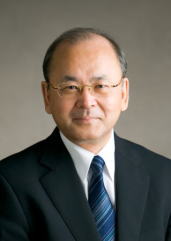TEL/FAX +81 (0)11 792 5083
〒065-0021 札幌市東区北21条東19丁目1-25
代表メッセージ

地球が誕生して約46億年、現代人の先祖が生まれて約20万年、リオデジャネイロにおける国連環境開発会議(地球サミット)から20年余り、温暖化ガス削減を初めて決めた会議COP3[地球温暖化防止京都会議]から7年。地球の歴史からすれば、人類が、地球の資源・エネルギーが有限であり、それらの消費の拡大が地球の気候にも影響することを自覚してからの時間はほんの一瞬と言えます。人類が地球の問題を自覚して、様々な取り組みを始めていますが、豊かな生活を求める経済活動は拡大の一途です。それは、誰も地球の限界を実感することができないためです。
近年、あらゆる分野において持続可能性(サステイナビリティ)の重要性が強調されています。しかし、必ずしもその本質についての理解がなされていないように思われます。高度に発達した社会システムに起因する様々な問題を総合的に評価して、適切な対応をすることは相当難しいと言えます。しかし、手をこまねいていては何も始まりません。一つの解は、それぞれが自らの活動におけるサステイナビリティの本質を理解して、必要なアクションをとることだと思います。
地球で最も多く用いられている物質はコンクリートです。コンクリートの生産量は世界で恐らく200〜250億トンにもなります。この量は発展途上国を中心に着実に増大しています。建設分野でもう一つの重要な資材は鉄鋼です。しかし、鉄鋼の生産量は15億トンに過ぎません。その半分が建設分野で用いられたとしても、コンクリートと比べると微々たるものです。いずれにしても、建設分野の資源・エネルギー消費量は膨大です。厄介なことに、インフラ整備が進むとそれに伴う社会・経済活動が活発化して、さらなる資源・エネルギー消費の増大をもたらします。このように、地球及び人類やすべての生物の持続性を保持するために、建設分野とその関連分野でサステイナビリティを追い求めることが重要となります。
私は、これまで、多くの同志と共に、国内では土木学会 (JSCE)及び日本コンクリート工学会 (JCI)で、また国外ではfib (International
Federation for Structural Concrete)、ISO (International Organization
for Standardization)、ACI (American Concrete
Institute)、ACF (Asian Concrete
Federation)においてサステイナビリティに関する多くの活動を主導してきました。また、役所や民間会社との共同プロジェクトも実施してきました。
日本サステイナビリティ研究所 (Japan Sustainability Institute)は、これらの活動継続の拠点として、また国内外の著名な研究者を客員研究員として招き、共同でサステイナビリティに関する研究活動を推進するために創設しました。
日本サステイナビリティ研究所
[代表] 堺 孝司
Message from the Representative
It is approximately 4.6 billion years since the formation of the Earth, two hundred thousand years since the birth of our ancestors, more than twenty years since the United Nations Conference on Environment and Development held in Rio de Janeiro (The Earth Summit), and seven years since the Kyoto Conference of the Parties to the United Nations Framework Convention on Climate Change (COP3) which was the first to adopt the reduction of greenhouse gases. When considering the span of the Earth’s history, it is a mere blink of an eye since humankind has become aware that the planet’s resources and energy are finite and that their increasing consumption will affect the global climate. Although, to this end, we have begun to take various countermeasures, economic activities in pursuit of an affluent lifestyle are simply expanding. This is because nobody can actually fully comprehend the limit of the Earth’s resources.
In recent years, the importance of sustainability has been highlighted in all areas, however its true nature does not necessarily appear to have been understood. It is a major challenge to take appropriate action by conducting a comprehensive assessment of various issues arising from our highly advanced social system. However, nothing will start if we simply keep our arms folded. One solution is for each of us to understand the essence of sustainability related to our respective activities, and to take the necessary action.
Concrete is the substance most used on Earth. Its production probably amounts to 20 to 25 billion tons worldwide and is steadily increasing, mainly in developing countries. Another key material for the construction industry is steel, but as its production volume is only about 1.5 billion tons, and even assuming that half of it is for the construction industry, it is next to nothing compared with concrete. Nevertheless, the resources and energy consumed by the industry are enormous, and to make matters worse, the advancement of infrastructure development intensifies related social and economic activities, thereby further increasing resource and energy consumption. It is thus vital to assure sustainability in both the construction industry and its related industries, in order to retain sustainability of the Earth, humankind and all other living beings.
I have taken initiatives in various activities concerning sustainability together with like-minded people in and for organizations including the Japan Society of Civil Engineers (JSCE) and Japan Concrete Institute (JCI) in Japan, and International Federation for Structural Concrete (fib), International Organization for Standardization (ISO), American Concrete Institute (ACI), and Asian Concrete Federation (ACF) overseas. I also have conducted joint projects with governments and private corporations.
I have founded the Japan Sustainability Institute as a base for the extension of these activities, while inviting celebrated researchers from Japan and overseas as guest research fellows in order to jointly promote research and development on sustainability.
Koji Sakai
Representative
Japan Sustainability Institute